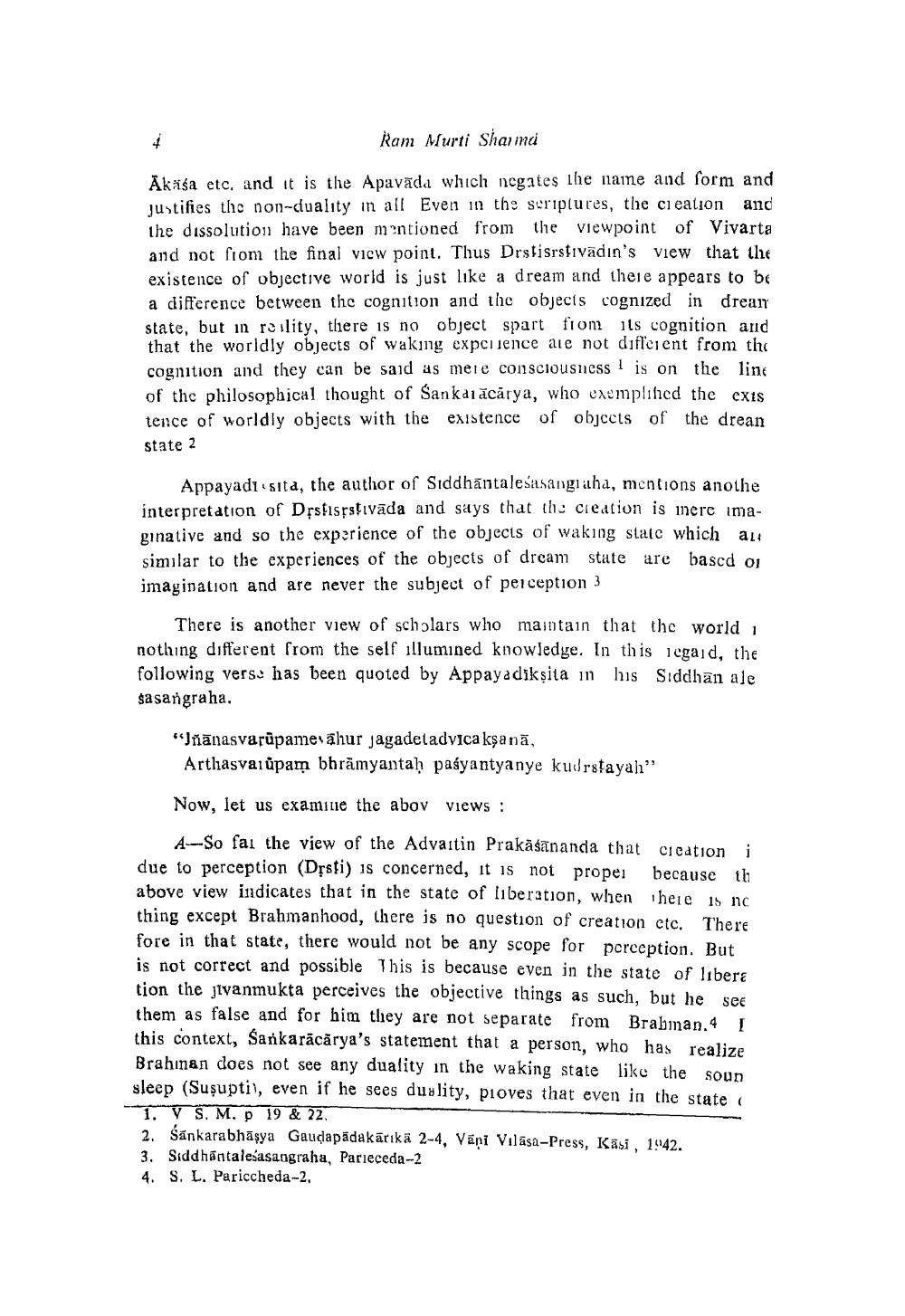Book Title: Sambodhi 1983 Vol 12 Author(s): Dalsukh Malvania, H C Bhayani, Nagin J Shah Publisher: L D Indology Ahmedabad View full book textPage 7
________________ Ram Murti Sharma Äkäsa etc, and it is the Apavāda which negates the name and form and Justifies the non--duality in all Even in the scriptures, the ci eation and the dissolution have been mentioned from the viewpoint of Vivarta and not fiom the final view point. Thus Drstisrstivādın's view that the existence of objective world is just like a dream and there appears to be a difference between the cognition and the objects cognized in drean state, but in ruility, there is no object spart from its cognition and that the worldly objects of waking experience are not different from the cognition and they can be said as mere consciousness 1 is on the line of the philosophical thought of Sankai ācārya, who exemplihed the exis tence of worldly objects with the existence of objects of the drean state 2 Appayadi sita, the author of Siddhāntalesasangi aha, mentions anothe interpretation of Distisfstivāda and says that the creation is mere imaginative and so the experience of the objects of waking state which an similar to the experiences of the objects of dream state are based on imagination and are never the subject of perception 3 There is another view of scholars who maintain that the world 1 nothing different from the self illumined knowledge. In this cgaid, the following verse has been quoted by Appayadikșita in his Siddhan ale sasangraha. "Jñānasvarūpame āhur jagadetadvica kșanā, Arthasvaiủpam bhrämyantah paśyantyanye kudrstayalı” Now, let us examine the abov views : A-So fai the view of the Advaitin Prakāśānanda that creation i due to perception (Drsti) is concerned, it is not propei because th above view indicates that in the state of liberation, when there is no thing except Brahmanhood, there is no question of creation etc. There fore in that state, there would not be any scope for perception. But is not correct and possible This is because even in the state of libera tion the jivanmukta perceives the objective things as such, but he see them as false and for him they are not separate from Brabman. I this context, Sankarācārya's statement that a person, who has realize Brahinan does not see any duality in the waking state like the soun sleep (Suşuptil, even if he sees duylity, proves that even in the state 1. V S. M. p 19 & 22. 2. Śánkarabhasya Gaucapadakārikā 2-4, Väni Vilasa-Press, Kasi. 1942. 3. Siddhantalesasangraha, Parieceda-2 4. S. L. Periccheda-2,Page Navigation
1 ... 5 6 7 8 9 10 11 12 13 14 15 16 17 18 19 20 21 22 23 24 25 26 27 28 29 30 31 32 33 34 35 36 37 38 39 40 41 42 43 44 45 46 47 48 49 50 51 52 53 54 55 56 57 58 59 60 61 62 63 64 65 66 67 68 69 70 71 72 ... 326
